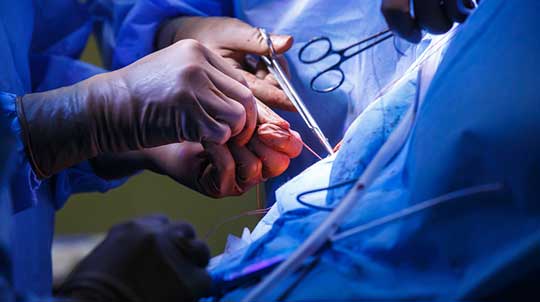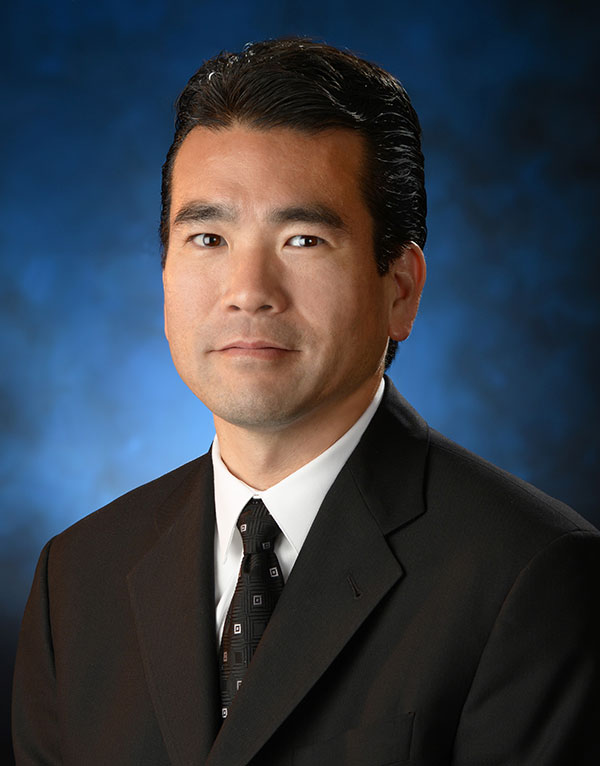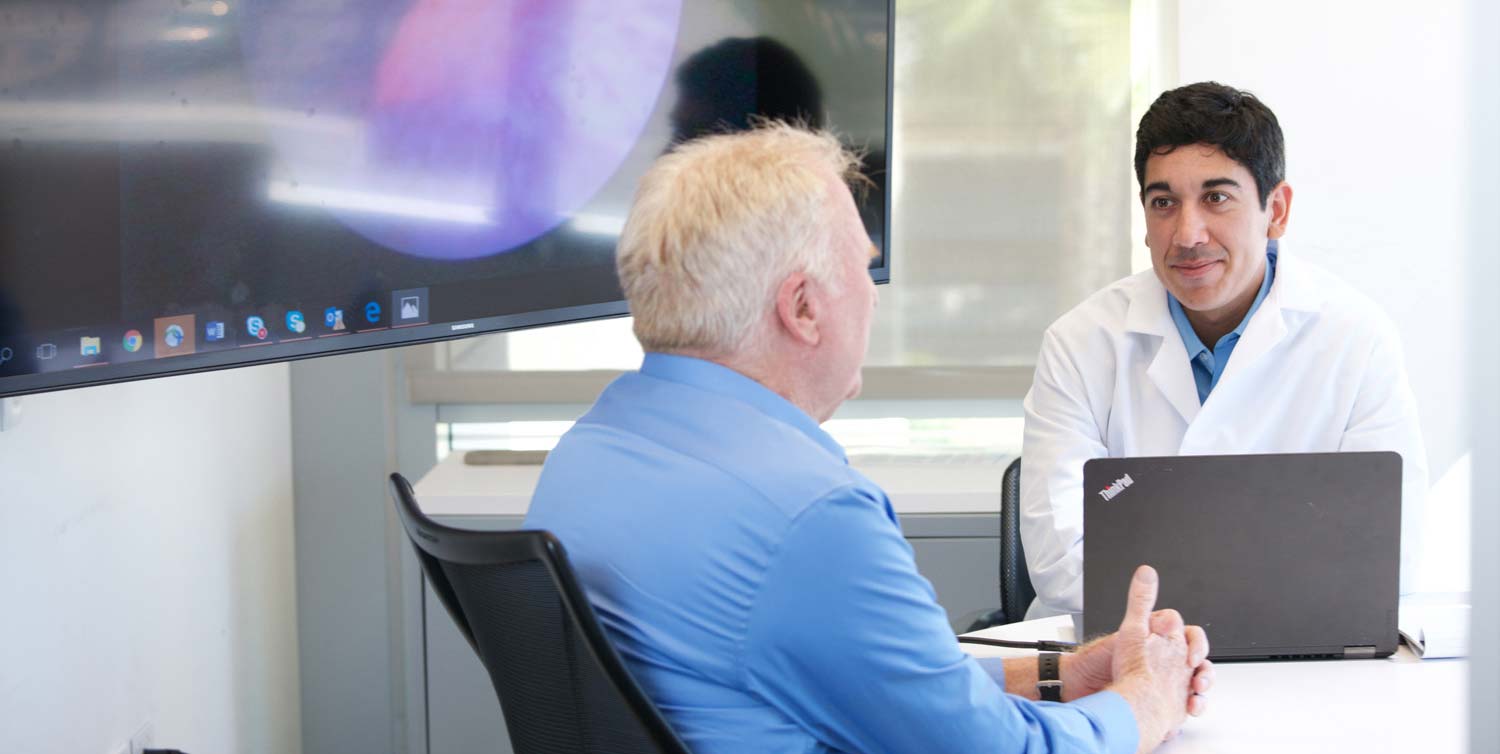Bladder Cancer

Nearly 80,000 people are diagnosed with bladder cancer each year in the United States.
While anyone at any age may be affected by bladder cancer, it's more common in men and older adults. Since it's often detected in the early stages, bladder cancer is also considered one of the most treatable forms of cancer that may affect the urinary system.
Even when successfully treated, however, periodic examinations by a urologist are recommended to detect signs of recurrence.
Contact Us Today
What Causes Bladder Cancer?
As is the case other forms of cancer, bladder cancer begins when abnormal cells grow and divide. The exact cause of this type of cancer isn't known. It is, however, associated with prior exposure to radiation, the use of tobacco products, and parasitic infections. Specific types of bladder cancer include:
- Urothelial carcinoma: Affects cells that line the inside of the bladder
- Squamous cell carcinoma: Associated with chronic bladder/urinary infections
- Adenocarcinoma: Starts in mucus-secreting glands
Common Symptoms
Painful or frequent urination are among the early signs that may suggest bladder cancer. Some patients experience hematuria, or blood appearing in urine. With hematuria, blood in urine may only cause slight discoloration that's difficult to notice visually. Depending on how the cancer affects the bladder, symptoms may also include pelvic and back pain.


How Is Bladder Cancer Diagnosed?
An initial physical examination that includes a discussion of symptoms experienced may be enough for a urologist to suspect bladder cancer. Testing to confirm a suspected diagnosis often involves a urinalysis, a visual inspection of the lining of the bladder (cystoscopy), and a urine culture. Positive confirmation of bladder cancer requires a biopsy, which may be done with a procedure referred to as a transurethral resection of a bladder tumor.
With a TURBT, part of the bladder muscle is also removed and analyzed along with tissue from the tumor to determine if the cancer is spreading. Further testing may include a CT or MRI scan, ultrasound, a bone scan, or an X-ray of the urinary system with a contrast dye (intravenous pyelogram).
Treatment Options
Treatment for bladder cancer is based on the stage, a patient's overall health, and whether or not it has spread. If the cancer is limited to inner layers of the bladder, treatment may involve burning away cancerous cells or using a high-energy laser. If a cystectomy is recommended, part or all of the bladder is removed. A possible alternative to bladder removal is a TURBT procedure to remove as much of the cancerous tissues as possible, followed by chemotherapy and radiation therapy.
When bladder removal is necessary, reconstruction surgery is also done to create a different storage area for urine. One option is to use part of the intestine to make a reservoir called a neobladder. For instances when surgery isn't an option or if the cancer may be treatable without surgery, treatment could primarily involve a combination of chemo and radiation therapy.
The outlook for patients with bladder cancer can be good if the disease is detected early or limited to a single area. One way to increase the odds of early detection is to see a urologist when there are signs something isn't right with your urinary system, such as frequent or painful urination. The risk of developing bladder cancer in the first place may be reduced by not smoking, enjoying a diet that includes a mix of colorful fruits and vegetables, and minimizing exposure to certain chemicals.
Contact Our Renowned Specialists Today!




Disclaimer : All content posted on this website is commentary or opinion. This website does not give or attempt to give medical advice and your personal information is not stored. THIS WEBSITE IS NOT DESIGNED TO – AND DOES NOT – PROVIDE MEDICAL ADVICE.
© Copyrights UCI Department of Urology, All rights reserved. | Links | UCI Men's Health Department | UCI Kidney Stone Center | UCI Pediatric Department | UCI Prostate Cancer Center | Privacy Policy | ADA Disclaimer
Internet Marketing


